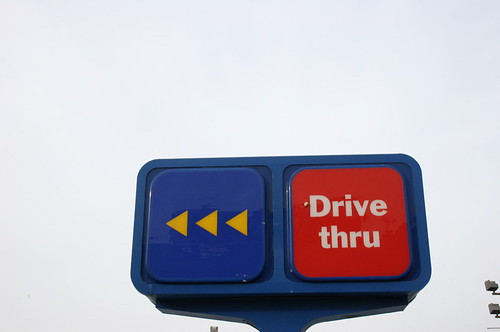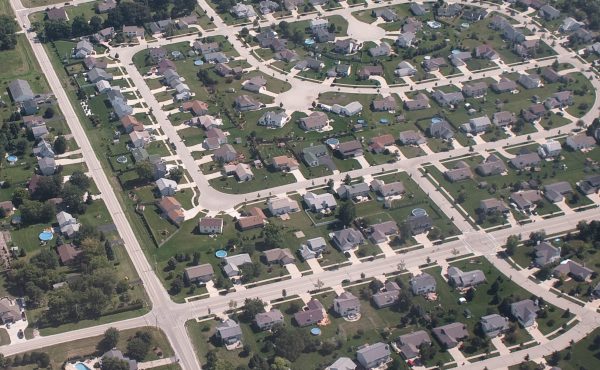
For the most recent issue of Spacing (coming out next week) I reviewed a book by Mary Soderstrom called The Walkable City. It’s full of interesting nuggets of information, and here is one of them: American scientists have worked out that it takes almost a billion gallons of fuel a year to drive around the extra weight Americans have gained on average since 1960. At present gas prices (the study was done in 2006 when they were comparable to today’s recession-cut prices), that’s billions of dollars worth of fuel.
Between 1960 and 2002, the average weight of Americans increased an astonishing 24 pounds. The scientists only looked at passenger vehicle travel, and used 2003 statistics to determine how many people travelled and for what distances. They calculated that it took no less than 938 million gallons of gasoline to carry around the extra weight, compared to what it would have taken if people weighed what they did in 1960.
It’s yet another hidden cost of building car-dependent communities that both reduce physical fitness and increase driving.
Canadians have not experienced quite as much average weight gain, but it has still increased significantly since 1960, so the study would apply to some extent here as well.
Photo by guuleed.



13 comments
I knew it.
Taller people likely accounts for some of that weight gain.
Not to belittle the obesity problem, but this particular number is useless out-of-context.
How much fuel is used each year by American cars? What’s the percentage increase in fuel use?
I know my car weighs just over 2000kg, with me sitting inside. So those 12 extra kg are an insignificant increase.
Another perspective: when full, the gasoline in my car weighs about 80kg, so I guess I could save fuel just by driving around half-full or less all the time…
There are Stats-Can findings that the 905 is 20lbs heavier than the 416. If you don’t believe it, just watch the people who ride the GO to the ‘burbs at Union. Also, when you see film from the early 60s, you’ll see a crowd looks much attractive, and not just because they dressed tidier: thinner.
Is the extra fuel usage based on the fuel economy of current cars? To follow from Harald’s comment – the cars of 1960 were a lot less fuel efficient than today’s cars, even if they were driven by thin people. Wouldn’t that offset some of the weight increase?
The GO commuter crowd is heavily (pardon the pun) skewed to the boomer demographic, who are mostly in their late 40s and early 50s, so that’s not surprising.
Check out films from the 1940s: everyone looks borderline gaunt; it’s gotta be a function of the relative affluence of society over the decades. We’re not enduring wartime rationing and junk food wasn’t as prevalent in the 50s and 60s as it is today.
A thing worth mentioning is that people probably buy bigger cars to accommodate their bigger sizes, so that would actually account more than the extra pounds of body weight having to be transported around.
For the more detailed questions, check out the link I provide to the story about the study. It looks like they took most of the external factors into account.
The study notes that other changes have had a much greater impact on increasing fuel use – but the sheer size of this factor is still disconcerting.
Ewww, seriously. Gluttony turns my stomach – in particular due to its enormous (…) impact beyond the enormous individual. Shame!
Thanks for posting. We are so broken with much work to be done…
Besides obesity being a symptom, cause and result of more driving in heavier cars, it also makes a person far less likely to switch to healthier transportation: foot, bike or transit (because you have to walk to transit). Few people start to exercise or alter their diet because they are obese; those who do have done so when they were still just overweight, or out of tone.
“nearly three times the total amount of fuel consumed by all passenger vehicles each day”
That’s less than 1% (3/365). (yawn)
Good trivia science but I am not really sure if one can draw meaningful conclusions from it.
Can we determine how much energy Spacing has consumed to conclude that Walking>Cycling>Public Transportation>Automobiles?
runs…..
Are you running so you don’t hear everybody say “huh”?